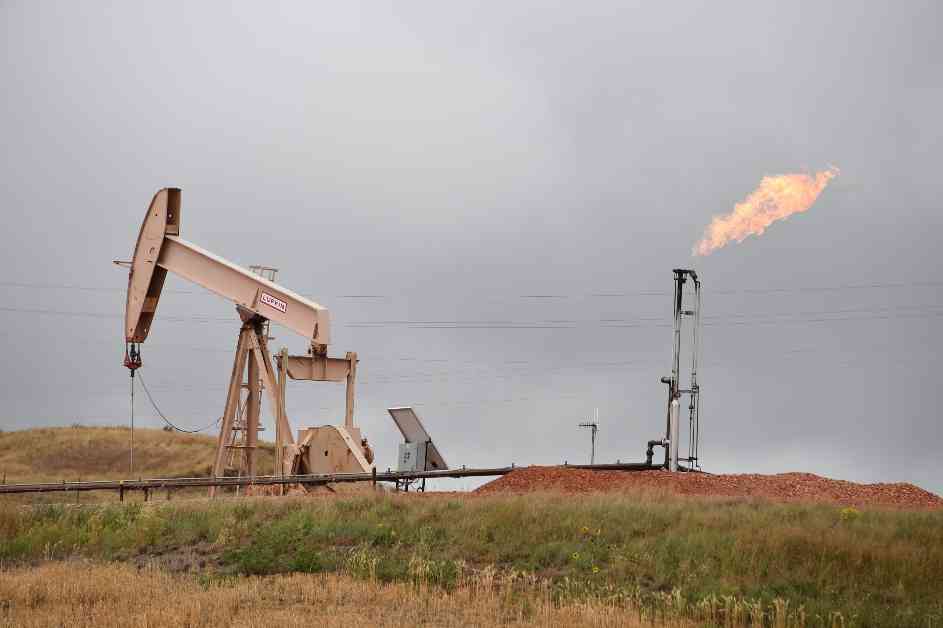GOP Seeks to Repeal Methane Fee: Environmental Impact and Political Backlash
Oil and gas fields are notorious for losing gas due to leaks, leading to the release of a potent climate-damaging pollutant into the atmosphere. In an effort to address this issue, the U.S. Environmental Protection Agency (EPA) introduced a groundbreaking methane fee in November, aiming to incentivize companies to address leaks and reduce emissions. However, House and Senate Republicans have recently introduced legislation to repeal this fee, which would not only eliminate the current rule but also prevent the EPA from implementing a similar one in the future.
Expert Insights and Criticisms
Pat Parenteau, an emeritus professor of law and senior fellow for climate policy at the Environmental Law Center at Vermont Law School, criticized the move, stating that the rule was designed to reduce waste and promote the responsible use of valuable resources. He emphasized the importance of plugging leaks to prevent environmental harm and conserve natural gas.
The Methane Fee and Its Implications
The methane fee, also known as the Waste Emissions Charge, was a component of the bipartisan Inflation Reduction Act (IRA) passed by Congress in 2022. The fee targets large methane emitters and includes exemptions for facilities compliant with Clean Air Act standards. Moreover, the IRA allocated $1 billion for financial and technical assistance to help oil and gas producers monitor and reduce methane emissions, with the goal of reducing methane emissions from the oil and gas sector by nearly 80 percent.
Industry Opposition and Legislative Action
Despite the potential environmental benefits, the oil and gas industry has strongly opposed the methane fee, labeling it as a punitive tax. The American Petroleum Institute (API) has been a vocal critic of the fee, advocating for its repeal through the newly introduced legislation. API’s executive vice president, Amanda Eversole, highlighted the industry’s concerns and the need for regulatory relief to support energy producers and consumers.
Congressional Review Act and Future Implications
The legislation to repeal the methane fee leverages the Congressional Review Act, a mechanism that allows Congress to overturn regulations within a specified timeframe. With Republican control of the House and Senate, the legislation could potentially pass, leading to the permanent elimination of the methane fee. This move has raised concerns among environmental advocates, who fear that rolling back the fee will hinder efforts to reduce methane emissions and combat climate change.
Expert Perspectives on the Repeal
Rick Duke, a former U.S. deputy special envoy for climate, warned that repealing the methane fee could jeopardize the competitiveness of U.S. liquefied natural gas exports. Duke emphasized the importance of maintaining environmental standards to ensure a competitive advantage in the global energy market. Additionally, Darin Schroeder, methane legal and regulatory director for Clean Air Task Force, expressed concerns about the potential consequences of backtracking on methane reduction efforts.
Environmental and Health Impacts
Rogelio Meixueiro, a Texas community advocate for GreenLatinos, highlighted the health risks faced by Latino families living near oil and gas operations. He emphasized the harmful effects of toxic emissions on respiratory health and overall well-being, underscoring the need to prioritize environmental protection and public health.
Implications for U.S. Energy Policy and Climate Action
The repeal of the methane fee could have far-reaching implications for U.S. energy policy and climate action. By undermining efforts to reduce methane emissions and promote environmental stewardship, the legislation threatens to stall progress on combating climate change and transitioning to a more sustainable energy future. As the debate over the methane fee continues, the future of U.S. energy policy hangs in the balance.
In conclusion, the repeal of the methane fee represents a critical juncture in environmental policy and political decision-making. As stakeholders grapple with competing interests and priorities, the fate of methane regulation and climate action remains uncertain. The implications of this legislative battle extend beyond regulatory frameworks to encompass broader questions of sustainability, public health, and environmental justice.














